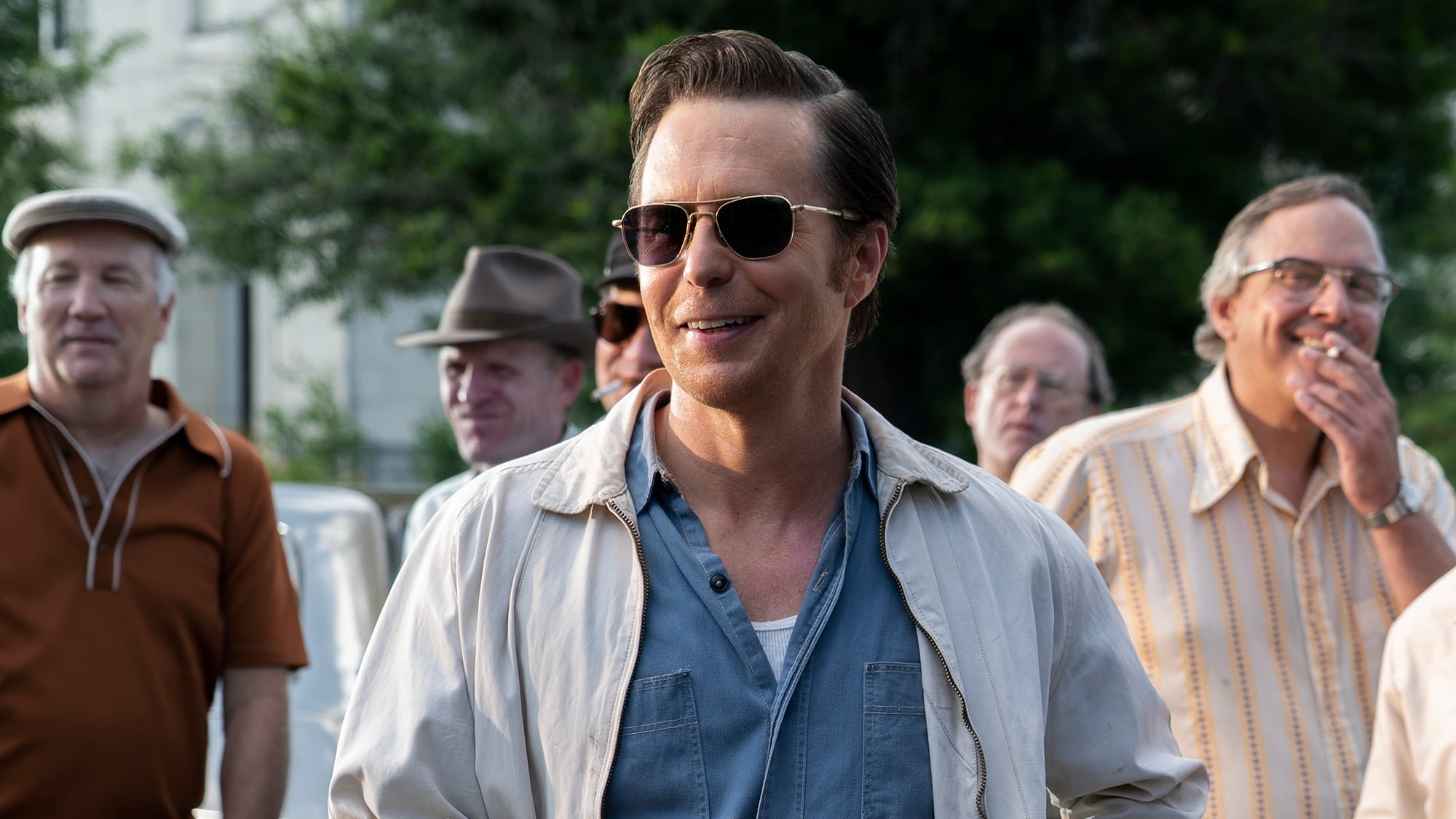The Best of Enemies is one of the sour side effects of watching a lot of movies. If you’re looking for a sweet, sincere movie about overcoming racism, this movie certainly has its heart in the right place, and a not so terrible message. It’s Taraji P. Henson and Sam Rockwell, great! If you weren’t paying too close attention, you’d come out feeling pretty good about what you just saw. But like Green Book last year, there’s something rotten inside of this film that undercuts the message this movie is trying to say.
I don’t know if you all know this, but racism and discrimination has been a part of American history for a LONG time. People like Ann Atwater (Henson), the crusading civil rights attorney in 1970s North Carolina, have to put up with institutional hurdles, daily discrimination, and outright terror, usually perpetrated by Ku Klux Klan leader C.P. Ellis (Rockwell). After an African American school burns down, Atwater pushes for integration of the school district, to Ellis’s chagrin. The high powers that be, in an effort to punt on the situation, push Bill Riddick (Babou Ceesay) out to try to reach a consensus in this divided community. He does this by pushing a community summit, which he wants Atwater and Ellis to co-run.
In my opinion, the biggest reason there is so much division and resentment from either side of a political debate is a lack of knowledge and understanding of the person you are talking to. These two elements lead to empathy, which then makes a conversation possible without it devolving into name calling. The Best of Enemies really pops when Ann Atwater and C.P. Ellis slowly learn about one another’s predicament. C.P. isn’t a rich man, but he still provides safe lodging for his mentally challenged son. Ann’s daughters were in the school that caught on fire, and C.P. personally witness the terrible situations the kids are being put into. Little moments like this make each participant see the other not as evil, but as a person formed by their own experiences. The movie also, at least a little, gives us gradation and shading of opinions with the community summit: not all black people are initially onboard with integration, and not all white people carry Klan memberships. The Best of Enemies looks at the world through eyes we wish existed in greater quantity, where problems could be solved by simply discussing the issues and hoping that people would use their empathy and newfound knowledge to make an honest decision.
Here’s the thing though: if you look closely, The Best of Enemies just isn’t right for 2019, maybe the movie, like Tupac’s old stuff, was written in ’94. A majority of this movie is told from C.P. Ellis’s perspective, and clearly sees him as the most interesting character in the movie, in the fact that he gives this Oscar speech while Ann Atwater sits on the side, quiet. I do contend Ellis is fascinating as a movie character, but isn’t a crusading uneducated single mother learning how to not lash out and argue her case better just as compelling? I’m pretty sure the only reason Ann Atwater is interesting is because Taraji P. Henson is a force of nature, and she imbibes Atwater (who is a force of nature in real life) with a fierceness the movie doesn’t elect to study. There are more complex white characters (6) than black (3), forcing audience to spend an inordinate amount of time sympathizing with the Klan, which leaves you icky. Rockwell and Henson turn in great performances which gloss over these issues, but after watching they linger, and just leave a funky taste in your mouth after something seemingly sweet.
The path of The Best of Enemies is to be lumped in with Green Book, Driving Miss Daisy, and other movies overfocusing on white characters when perfectly interesting black characters are there to be explored. It’s too bad, because their message of tolerance through understanding is a good one. Also rough is how people won’t remember how good Sam Rockwell and Taraji P. Henson are in this movie, so transforming into their characters you lose sight of the actor and only see Ann Atwater and C.P. Ellis.

